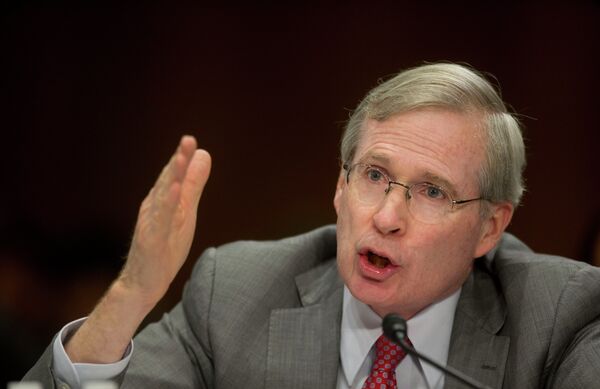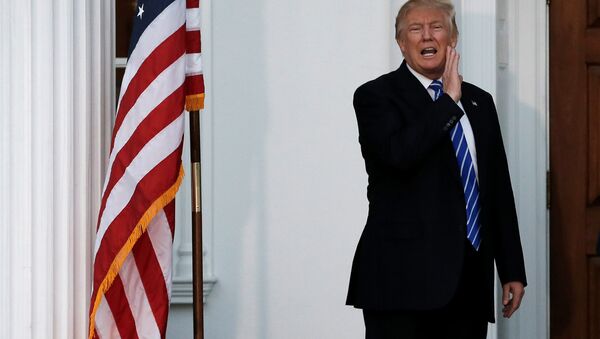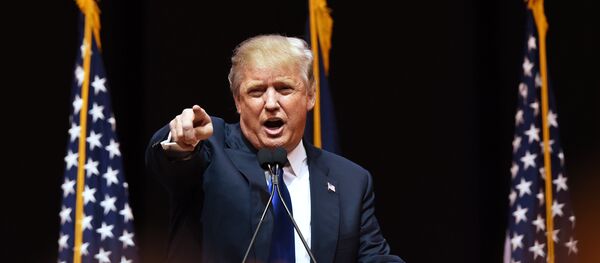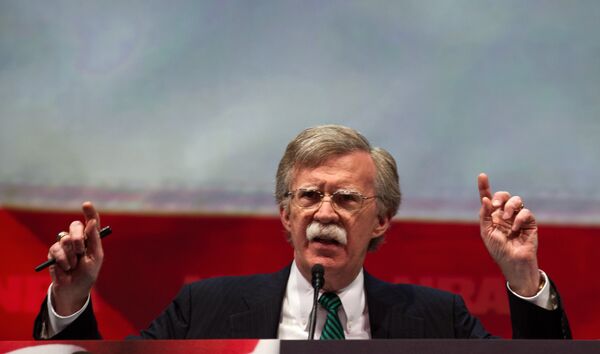Already Donald Trump is on course to be not only the most controversial president in recent US electoral history, but also the most embattled and besieged. Whether in the shape of the sustained street protests his election has unleashed across the country, the social media storm it has provoked — or whether it is the protests that are being leveled at him and his vision for the country by various musicians, rock bands, celebrities, and actors — he has already been left in no doubt that across the United States the resistance is mounting in response to his rhetoric on Muslims, Mexicans and Hispanics, women, and minorities in general.
The most powerful stance thus far, taken against the fear his election has unleashed, has come from within the US Jewish community.
Jonathan Greenblatt, head of the Anti-Defamation League, an organization that campaigns against anti-Semitism, has vowed to register as a Muslim if Trump goes ahead with the plans that have been mooted to establish a Muslim database. Explaining the reasons for his stance, Greenblatt said: "As a Jewish community, we know what happens with litmus tests. We can remember. We have painful memories of when we ourselves were identified, registered and tagged."
Following on from Mr. Greenblatt, a group of Jewish academics have released a statement, pledging to "to wage a struggle to defend the constitutional rights and liberties of all Americans." They go on to say: "Our reading of the past impels us to resist any attempts to place a vulnerable group in the crosshairs of nativist racism. It is our duty to come to their aid and to resist the degradation of rights that Mr. Trump's rhetoric has provoked."
Meanwhile many who viewed Trump's election as the harbinger of a welcome and long awaited departure from a foreign policy driven by US exceptionalism and hegemony, responsible for sowing instability, chaos and terrorism across the world, are justifiably raising concerns over the team the President-elect is pulling together to staff his administration. We're talking establishment insiders and neocons such as John Bolton, Zalmay Khalilzad, Stephen J. Hadley, and James Mattis among others.
Bolton, for example, was US ambassador to the UN under the Bush administration and is currently being touted as a contender to become secretary of state. He is a strong proponent of hard power who considers the war in Iraq to have been a success and who has advocated bombing Iran. In other words, he couldn't be more hawkish if he tried.
Khalizad, another possible pick for secretary of state, has been described as a staunch neocon. He is on the board of the National Endowment for Democracy (NED) in Washington, a notorious NGO funded by the US Congress that has been accused of working hand in glove with the CIA when it comes to undermining governments.
Then we have Stephen J. Hadley, shortlisted for the post of defense secretary. Hadley served as national security adviser in the Bush administration. In January 2015, Hadley called for a hard line to be taken against Russia with regard to the crisis in Ukraine, including the permanent deployment of NATO troops in the Baltics.

Finally, another possible pick for defense secretary is former US Marine General James 'Mad Dog' Mattis. Regarded as a legendary figure within US military circles, a soldier's general who was held in high esteem by his men, this former head of US Central Command is on record as railing against Russia's stance in Ukraine and with respect to Crimea.
This is not to suggest that Trump intends rolling back on his campaign pledge to reset Washington's relationship with Russia and take the sting out of a situation which, under the Obama administration, saw relations between both countries reach a post-Cold War nadir.
It does however, oblige us to exercise caution when it comes to what a Trump White House will entail, especially with regard to the strong likelihood of an uptick in hostile relations between the US, Iran and China, which would assuredly not be in Russia's interests, given the positive relations that Moscow enjoys with Tehran and Beijing.
On the broader point, Trump swept to victory against Hillary Clinton on the back of the kind of rhetoric associated in historical terms with proto-fascism when it comes to his views on minorities. The hope is that this was only rhetoric and that he will not — indeed that he will not be able to — follow through in practice on some of his pledges.
Demonizing Muslims, for example, represents an unthinking and crude lumping together of the entire Muslim world with the minority views of Daesh, Nusra, and other al-Qaeda and Salafi-jihadist groups that have emerged in recent years.
It is after all Muslims who have suffered the most at the hands of these terrorists and their extremist views, and it is Muslims who have done most to resist them — i.e. the Muslims of the Syrian Arab Army, Iraqi Army, the Kurds, the Iranian Revolutionary Guards, Hezbollah, and so on.
The problem is not Islam when it comes to the terrorist threat the world faces. The problem is the promotion of sectarianism and intolerance under the guise of Islam. These, ironically, are the very maladies that president-elect Donald Trump's critics accuse him of fomenting at home.
The views expressed in this article are solely those of the author and do not necessarily reflect the official position of Sputnik.






